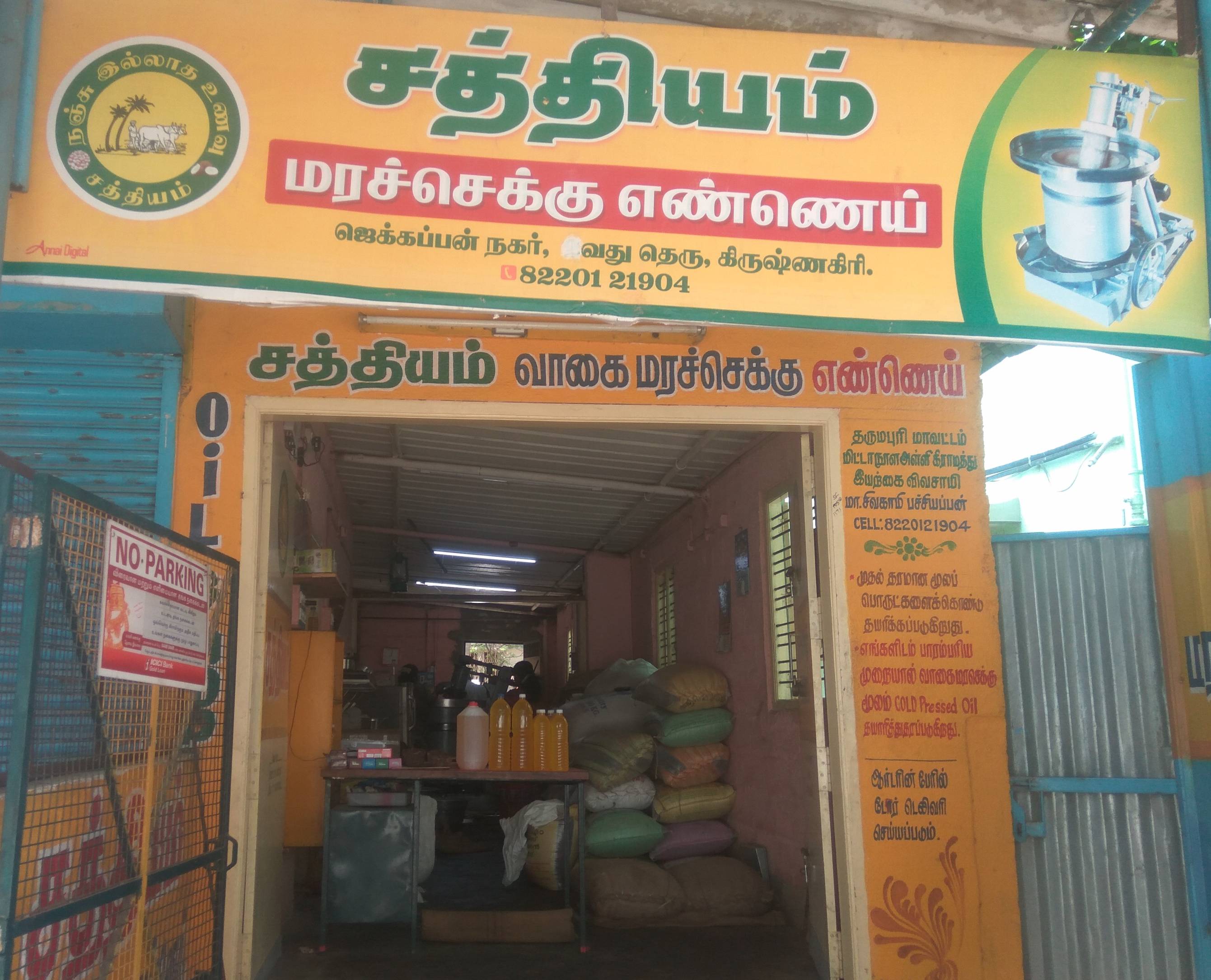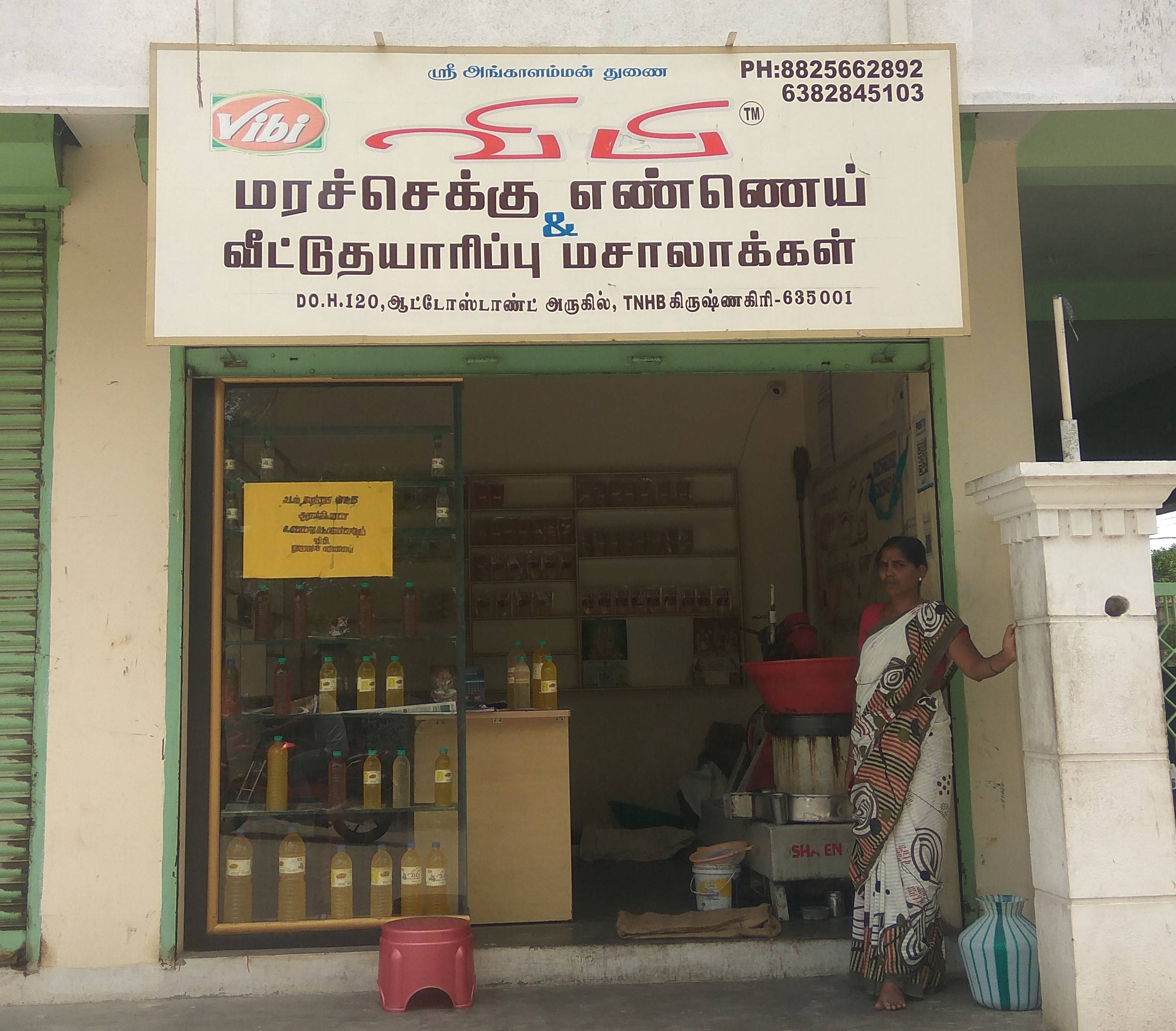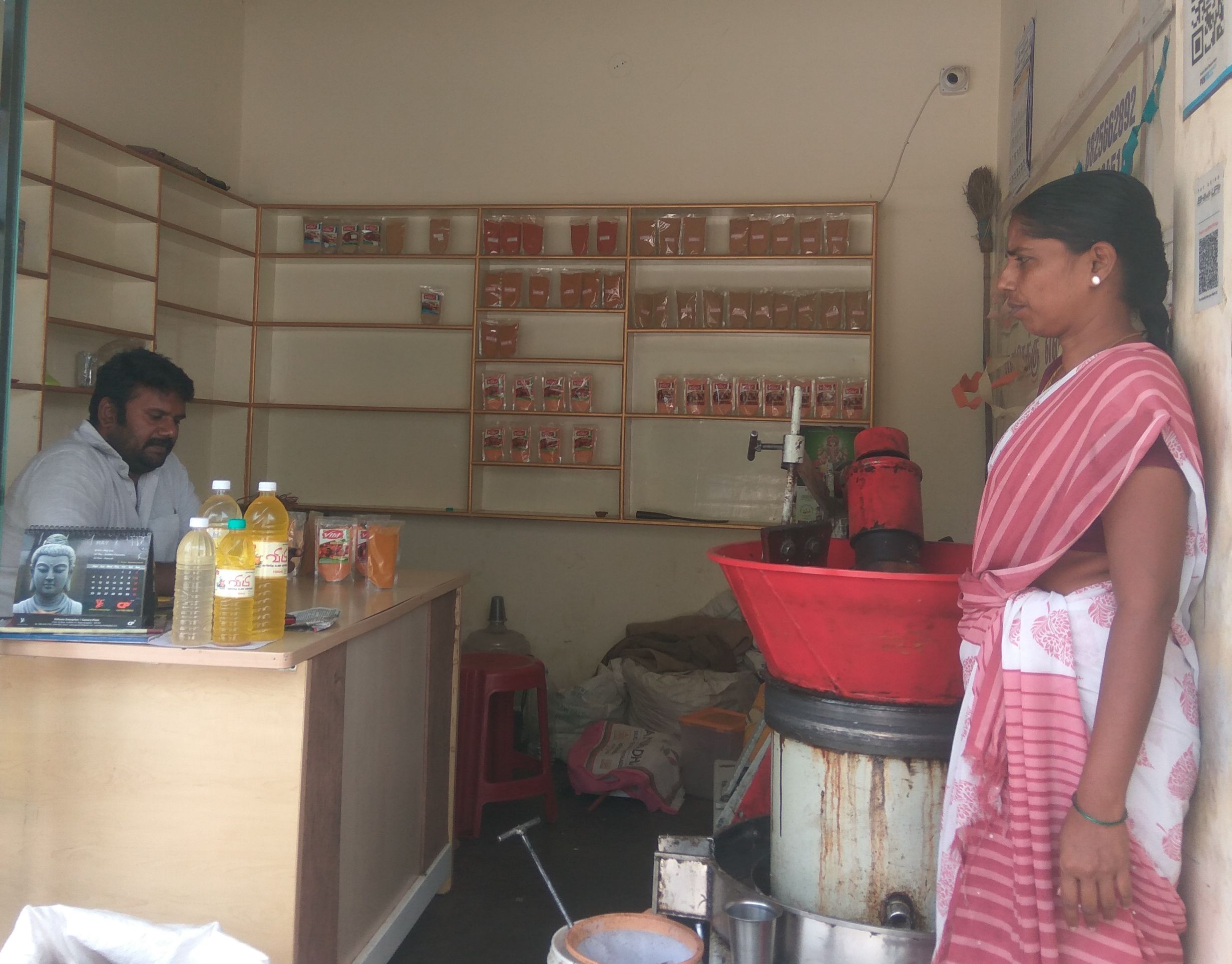Introduction
The food systems in various parts of India have been undergoing profound changes over the past three to four decades, which include: 1) transition from self-provision of major food items through cultivation and collection of uncultivated foods from the immediate environmentto sourcing from markets and Government food schemes in rural areas, 2) replacement of value-added foods made at home like cooking oils, chilli powder, wheat flour, rice flour, dosa batter, pickles and coffee powder withthose sourced from market and 3) replacement of food products sourced from local/regional enterprises withthose marketed by large national/international corporates. The consumers have been distancing themselves from producers and manufacturers of foods in terms of time and space with lengthening of food value chains. With increasing reliance on market, the time spent on sourcing quality food ingredients and preparing recipes at home has come down. Consumers have lost their ability to appreciate the variations of foods across varieties, geography and time, with foods being fashioned on the lines of standardised mechanical objects, looking the same everywhere. With these sweeping changes, control of consumers over the quality of foods hascome down drastically, especially the nutritional aspect, mainly because of the many less noticeable changes in the foods brought about by the corporates for standardisation, increasing shelf life, enhancing appearance, ease of use and reducing production costs. Consumers are increasingly losing their contextual understanding of foods they are consuming and getting deskilled in the process. Further, these trends have monetised almost all the food transactions, which provided and impetus to the need for earning cash-based income even in the rural economy, thereby marginalising those with less capacity for the same. These trends are gaining strength with our societies being driven by speed, convenience and comfort in all aspects of life, and with individuals increasingly deriving their identity from materials consumed rather than the purpose behind consumption.
Cooking oils are one of the food categories, which got transformed in the last few decades. Thirty or forty years ago, considerable numbers of rural families used to process farm-produced oilseeds in the nearby stone/wooden/iron expellers to meet the family requirements for cooking oils. Cooking oils were supplied by the local oil mills and available from local grocery shops even in smaller quantities. But big corporates entered the market by promotingindustrially processed refined oils and introducing new types of cooking oils likesunflower oil and blended oils. Low prices of packed, refined, blended and branded oils, combined with the image that they are better for health when compared to locally milled oils have led to their widespread use even in the rural areas. The number of packed oil brands in different price ranges has proliferated in the market catering to all sections of the society. With this, adulterated, poor quality, packed cooking oils have entered the market and over the years have seized significant market share. Research by Consumer Voice, a consumer organization, has confirmed adulteration up to 85 per cent, in loose edible oil sold across 15 states in India. The study further revealed that the adulteration was found in eight major varieties namely mustard, sesame, coconut, sunflower, palmolein, soybean, groundnut and cottonseed oil.[1]The quality of cooking oils deteriorated due to change in processing methods on the one hand and adulteration on the other hand. Dr. Bhuvaneshwari Shankar, asenior consultant dietitian, shares that extraction by industrial methods, involves various processes like bleaching, steaming, distillation and hydrogenation. The seeds are exposed to extremely high temperatures to get clear bland oil and chemicals like phosphoric acid, calcium hypochlorite are added to increase the shelf life of the product, which inturn affects not only the flavor and aroma but also strips the oil of all its nutritive values. The more refined an oil is the less nourishing it will be for our bodies[2]. These problems get complicated further with adulterated cooking oils. These issues did not get the necessary attention of the common people for a long time. Luckily about five years ago, widespread awareness was created on the problems with packed cooking oils by health-conscious individuals, which was fuelled by the social media, especially WhatsApp. This has led to a search for better alternatives andoils extracted using wooden/stone expellers were promoted as one such alternative. Marachekkuennai, cold-pressed oil from wooden expeller, captured the imagination of common people as old people were familiar with their rich aroma and taste and there were a few old wooden expellers in use in some of the towns. The health benefits of Marachekkuennai over industrially produced oils include i) no added preservatives and chemicals, ii) high in Vitamin E and micro nutrients, iii) free from trans-fat and iv) retention of antioxidants. As it is manually filtered, it is more viscous and retains the flavor fully. This helps in lesser consumption (at least by 20%) of oil as compared to the industrially processed refined oil (Bhuvaneshwari Shankar). Recent research also validates the health benefits of cold-pressed oils and their importance for cooking and skin care[3].With the building of awareness through social media about the health benefits of cold-pressed oils, a potential demand has been created for them. Understanding the business opportunity behind this change in the choice of cooking oils, many business units started supplying packed cold-pressed oils across the region and some at the national level. While this is the case, a few local entrepreneurs have initiated small scale oil processing units with wooden expeller in the towns and cities. With the success of these units, many local entrepreneurs have entered this business in the last three years. Currently there are a good number of local oil mills with wooden expeller across Tamil Nadu serving significant number of consumers. Emerging of these local processing infrastructure shows that marachekku oil is not a ‘food-fad’ and it is here to stay at least for some time.This change is quite significant because it happened in a short period in the mode of a movementled by private actors without any significant role of government. While re-entry of cold-pressed cooking oils is good for the health of consumers, emergence of small-scale marachekkuennai mills run by local entrepreneurs can have many additional benefits for the local food systems. The following section shares the experience of twoentrepreneurs in Tamil Nadu who have established wooden expeller based local oil processing units.
Case studies
Satyam MarachekkuEnnai, Krishnagiri

Sathiyam Marachekku Ennai, Krishnagiri; photo: M. Karthikeyan
This unit was initiated by entrepreneurs Mrs. Sivakami and her son Mr. Parthiban. They hail from a farming family and Mr. Parthiban is a teacher by profession. Mr.Parthibanobserved that since his childhood, farmers were intimidated and cheated by the local traders, leading to realisation of unviable prices for their farm produce. He was searching for alternative marketing channels for realising better prices for the coconut cultivated in his farm. He came to know about ‘marachekkuennai’ and its health benefits. Influenced by Nammazhvar, a leading figure who promoted a movement for food free of poison across Tamil Nadu, he decided to set up a marachekku unit in Krishnagiri. He visited many existing marachekkumills across Tamil Nadu and wasconvinced about the business venture. So, he initiated Sathiyam Marachekku Ennai in July 2018. It was his first business venture. He has used his own funds and has not accessed any government support.

Wooden expellers in Sathiyam Marachekku Ennai, Krishnagiri; photo M Karthikeyan
By May 2020, Sathiyam Marachekku Ennai had two business units, one unit focusing on production and another with display space on marketing. These two units have three wooden expellers, each with a capacity of 16kg/batch – one new and two second-hand machines. Oil expellers were made with ‘Vagaimaram’ (a hardwood tree known for medicinal benefits; botanical name Albizia lebbeck). The wooden pole in the centre costing Rs. 6300/- need to be replaced for every 5 tonnes of oilseeds processed and the wooden base costing Rs.40000/- need to be replaced every 3 years.Five women staff were engaged and the production capacity was about 90-100 litres per day. Sathiyam Marachekku Ennai started with coconut oil; but after realising that the market for other cooking oils, groundnut, gingelly and castor oils were added to the product portfolio.
Later, Sathiyam Marachekku Ennai diversified to other health foods namely country sugar, small millet rice and value-added foods, traditional rice varieties, rock salt and common salt as part of the product portfolio. It occasionally attempted to market traditional fried snacks prepared with quality ingredients and home processed red-gram (more nutritious than the industry processed red-gram and not available in the market). To discourage use of plastic bottles, an incentive of Rs.10 was given to customers who brought containers of their own.
By May 2020, Sathiyam Marachekku Ennai was marketing about 2000 litre groundnut oil, 400 litre gingelly (sesame) oil, 300 litre coconut oil and limited quantity of castor oil per month. The sale of oils was seasonal in nature with less sales during February, May and June months. It also offered custom hiring service for interested customers for processing oilseeds.
Mr. Parthiban felt that the consumer response has been encouraging. SathiyamMarachekkuEnnai was serving 1500 repeat consumers on a monthly basis. Some of his repeat customers have shared their experience of overcoming skin allergy and knee joint pain with the use of marachekku oils. Few others have observed that cold-pressed oils are very suitable for oil pulling practiced to manage many illnesses.
The main challenges faced by SathiyamMarachekkuEnnaiwere i) hike in groundnut prices (in the recent past groundnut price has increased by 30-40%), and ii) competition from packed cold-pressed oils sold by big retailers, which are priced way lower than the prices of SathiyamMarachekkuEnnai products. Another issue is price variation even among the small-scale marachekku oil units in the town, which creates confusion among the consumers. He feels that FSSAI can take some responsibility to standardise the quality of marachekku oils in the interest of the consumers.
He has plans to increase offering of custom hiring service in his units. Customers can bring their own oilseeds for milling or buy some from SathiyamMarachekkuEnnai. He expects that this service will offer space for the customers to understand the intricacies in milling and appreciate the pricing strategy followed in the mill. He has plans to source raw materials directly from farmers or farmers’ networks instead of traders. In the long run, he has plans for initiating a cooperative organic food market by involving large number of organic farmers.
Mr. Parthiban feels that many units such as SathiyamMarachekkuEnnai need to emerge across the country. He feels that decent livelihood can be earned from this business opportunity, if an entrepreneur is ready to put her/his own labour along with limited investment. He is ready to support such forthcoming entrepreneurs and he has already aided setting up of 10 units across Tamil Nadu. He cautions that necessary attention to be given for sourcing wooden oil expeller from reliable manufacturers who have a good track record for aftersales service.
Vipi Marachekku Ennai and Veetu Thayarippu Masalakkal (home made spice), Krishnagiri
This unit was established by Mr. V. Senthilnathan, a businessman. One of the members of his family was ill and they were advised to use healthy cooking oil. On finding it difficult to source good quality cooking oils, the entrepreneur thought of setting up a production unit of his own to meet the needs of families like his.

Vipi Marachekku Ennai, Krishnagiri; photo M. Karthikeyan
He was the first to take up cold-pressed oil business in Krishnagiri. He initially milled the oilseeds utilising the old marachekku in the nearby town and sold the oils in Krishnagiri. Encouraged by the consumer response, he initiated his own mill with a 10 kg/batch capacity wooden expeller by early 2018. Later that year he initiated another unit with 5 kg/batch capacity wooden expeller to expand his business. Both the units had production and display space. He later added home-made masala powders in the product portfolio, as he found that it is difficult to get unadulterated products without preservatives. By May 2020, he was engaging four women staff. His units were producing and marketing groundnut oil, gingelly oil, coconut oil, castor oil, turmeric powder, chilli powder and sambar powder. His units also offered custom hiring service for milling oilseeds to interested customers. He has invested about Rs.12,00,000 so far and has not accessed any support from government.

Wooden expeller in Vipi Marachekku Ennai, Krishnagiri; photo M. Karthikeya
His two units serve about 350 repeat customers. He felt that the consumer response has been lukewarm, as the awareness is yet to convert into actual demand. Another reason is that the prices of Vipi products were slightly higher than the prices of other marachekku units as high-quality raw materials are used by choice. He informed that many of his customers have shared the health benefits realised by them.
Like SathiyamMarachekkuEnnai, he also has plans to increase custom hiring service offered to customers. He has plans for expansion in a few other nearby towns. He informed that by design, the quantum of oil produced from one unit is limited as the wooden expeller has to run at 12 rpm speed. So, he will not be able to meet the demand, if many consumers opt for this healthier option. The way out is for many entrepreneurs like him have to come forward to set up such units. He is ready to support such entrepreneurs and has already helped setting up of two units.
Interestingly there are many similarities in the approach and views taken by both the entrepreneurs taken for the case study. Both of them have plans to increase the custom hiring component as they feel that will facilitate direct engagement of customers in sourcing quality cooking oilsfor their family and result in their appreciation of due price to be paid for quality food ingredients. They also felt that such custom hiring is a good business proposition to a small-scale wooden expeller business unit. Both of them have diversified their product portfolio to other health foods, indicating apositive spillover effectof such local processing infrastructure.Both of them are of the view that there need to be horizontal scaling out of such units across the country to meet the demand, instead of a few centralised brands of cold-pressed oils dominating the market. They felt such expansion is feasible as an entrepreneur can enter this business with limited investment; she/he can start with one machine or utilise existing cold-press mills nearby.Both of them emphasised that profit should not be driver in this business and the entrepreneurs should focus on offering safe and healthy foods to the wider society, while keeping profits as the bottom line. Both of them observed that Government support can aid such initiatives by facilitating credit supply and monitoring oil quality.
Understanding the health benefits of cold-pressed oils and the rising demand for the same, Natrampalli and Gudiyatham Rainfed Farmers Federations in Vellore district has ventured into marketing them to their members, who to a large extent belong to low-income rural household category, in an affordable price range. They utilise the services of old cold-pressed oil mills in the neighbourhood. They have been fairly successful in reintroduction ofmarachekku oils among a section of their members, who used to consume the same one or two decades back.
Conclusion
The experience of SathiyamMarachekkuEnnai and Vipi Marachekku Ennai & Veetu Thayarippu Masalakkal shows that there is quite a high scope for horizontal expansion of such decentralised small-scale oil processing infrastructure. While establishment of a market for cold-pressed oils in metros and bigger cities is not surprising given the increasing health consciousness and rising market for health foods, establishment of more than sevenmarachekkuunits in the last three years in a non-commercial small town like Krishnagiri indicate the possibility of such development even in other areas. The possibility of establishment of a market for cold-pressed oils even among rural consumers who are quite price-sensitive by two federations also shows the scope.
Suchsmall scale local oil processing infrastructure has positive spill over effects on the local food systems by diversifying to other healthy food products given the motivation of the entrepreneurs to offer poison-free/healthy foods to the local population and the identity associated with that, and the necessity to increase viability of the business by optimising the use of infrastructure and manpower. The other spillover effects are i) bringing back the role of local entrepreneurs in the food systems, which has been eroding over the years (in a more acceptable way for the budding entrepreneurs and clean way for the consumers than the traditional mills), ii) inculcating the practice of investing quality time by individuals to source food ingredients for their family, iii) shortening of food value chains, and iv) creation of face-to-face relationships between food processors and consumers.In these ways emergence of such local infrastructure revives and strengthens local food systems.
Though this change in choice of cooking oils has happened without much role of the Government, its support to budding local entrepreneurs can acceleratefurther horizontal expansion of the same across the country. Autonomous emergence of small scale cold-pressed oil units in good numbers across Tamil Nadu as a response to local consumers’ awareness and demand for healthy cooking oils offers hope that bringing about such positive changes in the local food systems across a large geographical region by civil society and local entrepreneurs is feasible and can be attempted.
Contact the author
The author is a senior development professional engaged in grassroots initiatives on rainfed farming development, revalorizing millet-based food systems, building organisations of poor farmers & women, and community banking for the past 24 years. He is associated with DHAN Foundation, a pan-Indian development NGO in India.
[1]https://www.newindianexpress.com/lifestyle/health/2018/jun/12/85-per-cent-adulteration-in-loose-edible-oil-1826744.html
[2]Bhuvaneshwari Shankar, Go for Cold Pressed Oils for Amazing Health Benefits, 2018 https://www.netmeds.com/health-library/post/go-for-cold-pressed-oils-for-amazing-health-benefits
[3]Subhash Chandra, Mukesh Kumar, PradeepDwivedi and L.P. Shinde, Functional and Nutritional Health Benefit of Cold-Pressed Oils, International Research Journal of Food and Nutrition, pISSN: 2663-7170, eISSN: 2663-7189